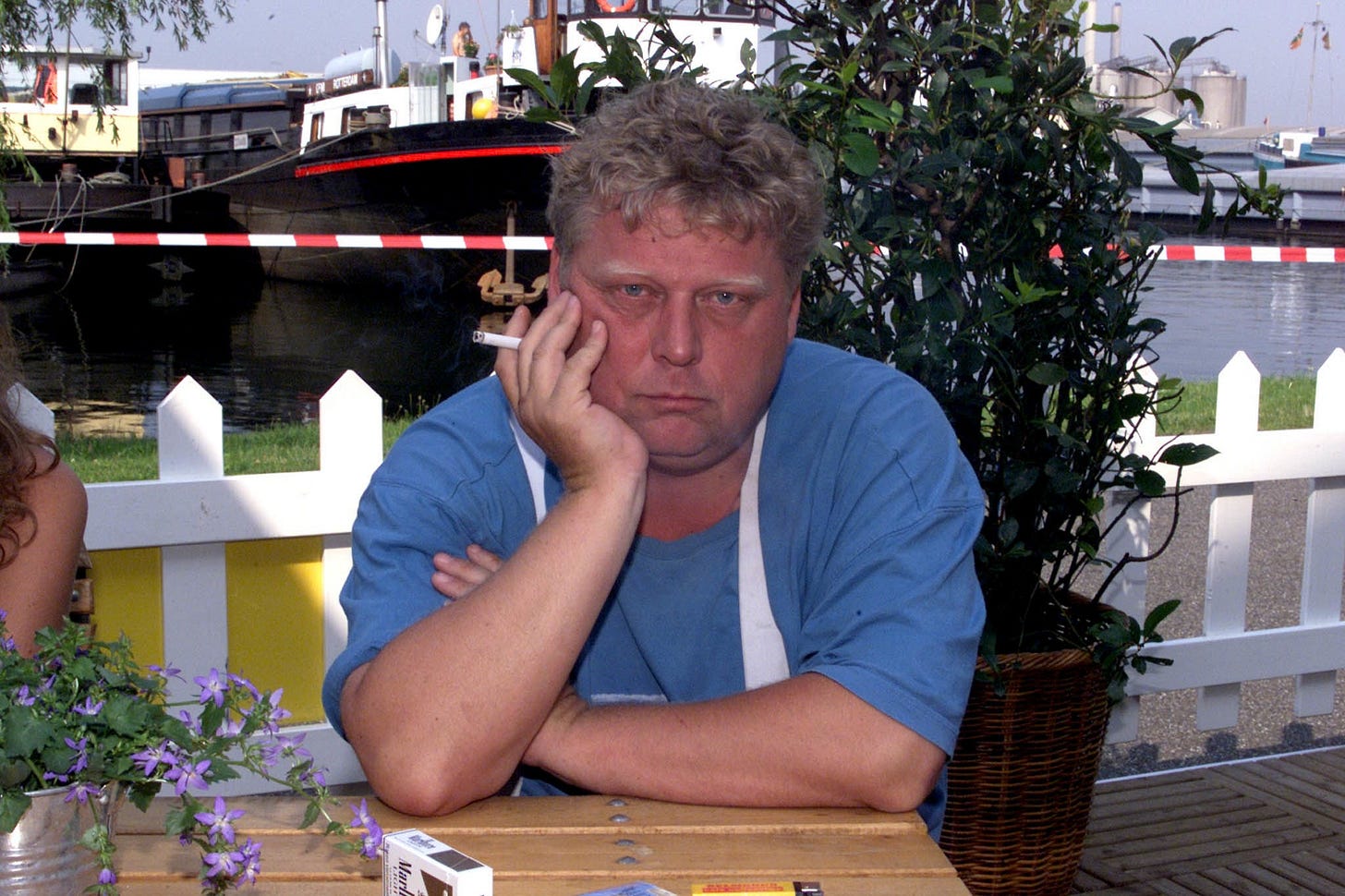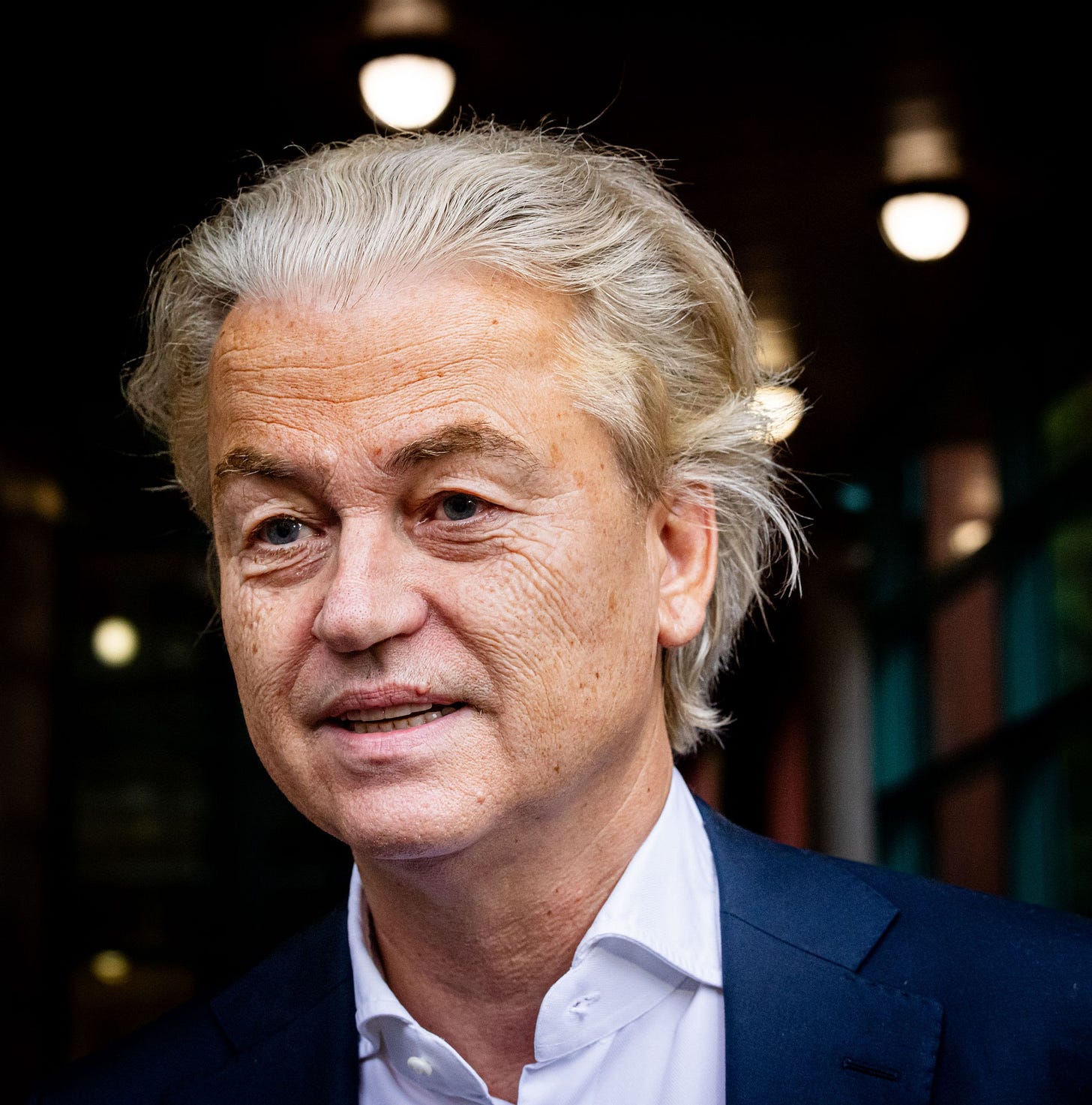On the morning of November 2nd, 2004, the Dutch filmmaker Theo van Gogh was butchered on his way to work. As he was cycling to his production studio in Amsterdam, a man of Moroccan descent was waiting for him, wielding a handgun and two butcher knives. Muhammad Bouyeri approached van Gogh and shot him several times. His victim fell off his bike and collapsed down the road. His last words were a desperate plea to the killer: “Can’t we talk about this?” Bouyeri then shot van Gogh four more times, took one of his butcher knives and sawed into the victim’s throat, and stabbed the other knife onto his chest, bearing a five-page letter.
The letter was signed Saifu Deen alMuwahhied. It referenced the fundamentalist Islamic group Takfir wal-Hijra, an offshoot of the Muslim Brotherhood. Its contents also contained repeated mentions of Jewish influence in Dutch politics. And it was addressed to Ayaan Hirsi Ali, an immigrant from Somalia who at the time served as an MP in Dutch Parliament.
Two months before van Gogh’s brutal assassination, he and Hirsi Ali were collaborating on a short film titled Submission, Part 1. Due to the untimely passing of its director, Part 2 did not materialize. The 11-minute short features a nameless woman in dialogue with Allah, clad in a see-through Hijab. She represents women who have been abused in the name of the Islamic faith, including Hirsi Ali herself. Written on her body are Quran verses highlighting the unequal status of men and women under Islam:
“As for female and male fornicators, give each of them one hundred lashes, and do not let pity for them make you lenient in enforcing the law of Allah.” (24:2)
“They ask you ˹O Prophet˺ about menstruation. Say, ‘Beware of its harm! So keep away, and do not have intercourse with your wives during their monthly cycles until they are purified.’” (2:222)
Men are the caretakers of women, as men have been provisioned by Allah over women and tasked with supporting them financially. And righteous women are devoutly obedient and, when alone, protective of what Allah has entrusted them with. (4:34)
Twenty years later, Ayaan Hirsi Ali remains in the forefront of Western discourse on the perils of fundamentalist Islam and, because of men like Bouyeri, still has to live under armed protection.
“Can’t we talk about this?” said Theo van Gogh.
I claim to be neither a practitioner nor a scholar of Islamic beliefs and culture. However, as a defender of Western liberalism, I cannot abide by a set of beliefs that drives its adherents to murder filmmakers and threaten politicians. Islamism - the political ideology that seeks to realize the values and laws of Islam on a state and society - is such a set of beliefs. By making Submission, van Gogh stood firmly on the side of liberalism against its most dangerous enemy. Twenty years after his death, he stands in the pantheon of Dutchmen - luminaries include Erasmus, Hugo Grotius and Spinoza - who dedicated their lives to religious and political liberty.
Two years before van Gogh’s assassination, a prominent Dutch politician was shot dead in a car park, after giving an interview on talk radio. In his life, Pim Fortuyn was as brilliant as he was controversial. Initially a Marxist, he shifted his views in the 1990s as he took a stance against multiculturalism and Islam in his home country. An openly gay man and a supporter of gay rights, Fortuyn saw in Islam a system of oppression against those who share his sexual orientation: “Muslims have a very bad attitude to homosexuality, they're very intolerant." Routinely labeled as ‘far-right’ by his detractors, he fiercely rejected this libel:
Journalists keep on ringing him and comparing him to France's Jean-Marie Le Pen.
"We have nothing in common," he says banging the table. The Wedgewood cups shake, and the small dog quivers.
"What about your opposition to immigration?" I reply. "Surely you share those ideas?"
"No, no, no," shouts Mr. Fortuyn.
Fortuyn was gunned down on the way to his car on May 6th, 2002. His killer was Volkert van der Graaf, a far-left animal rights activist. It was the first political assassination on Dutch soil in 400 years. Van der Graaf claims that he “saw in Fortuyn an increasing danger to, in particular, vulnerable sections of society" and that he “saw no other way he could stop that danger than to kill [him]."
“Can’t we talk about this?” Theo van Gogh uttered his last words, before being murdered on the morning of November 2nd, 2004.
In a functioning liberal society, one can disagree with people like van Gogh, Hirsi Ali, or Fortuyn without taking up arms and aiming for their lives. But if you are an Islamist, or a sympathizer of Islamism, the only way to deal with their ideas is with force. ‘Islamophobia’, for all intents and purposes, represents a refusal to reckon with the previous two statements. Now that the debate around Islamism is returning to Western political discourse - particularly in Britain - we should be prepared to hear the accusation of ‘Islamophobia’ being repeatedly and callously hurled. Already, it has been wielded by Scottish First Minister Humza Yousaf, in conversation with Rory Stewart and Alastair Campbell: “There is definitely a deep-rooted, systemic and endemic Islamophobia in this country.” Yousaf, who is a Muslim, is not wrong to worry about the rhetoric of paranoid demagogues imagining the ‘Islamization’ of Britain, but he is mistaken in implying that anyone who voices concerns about the toxic influence of political Islam is categorically an anti-Muslim bigot. This level of irresponsibility on the part of high-level politicians such as Yousaf only fuels the rage of agitators like Nigel Farage and his left-wing counterpart, George Galloway.
Currently, the most popular politician in the Netherlands is Geert Wilders, who voices the same concerns regarding Islamism as Theo van Gogh, Ayaan Hirsi Ali and Pim Fortuyn, while also being labeled ‘far-right’ as a result. Unfortunately, as long as we refuse to learn from the tragic deaths of van Gogh and Fortuyn, in addition to the tireless warnings of Hirsi Ali, liberal politics will be in even graver danger than it already is.






